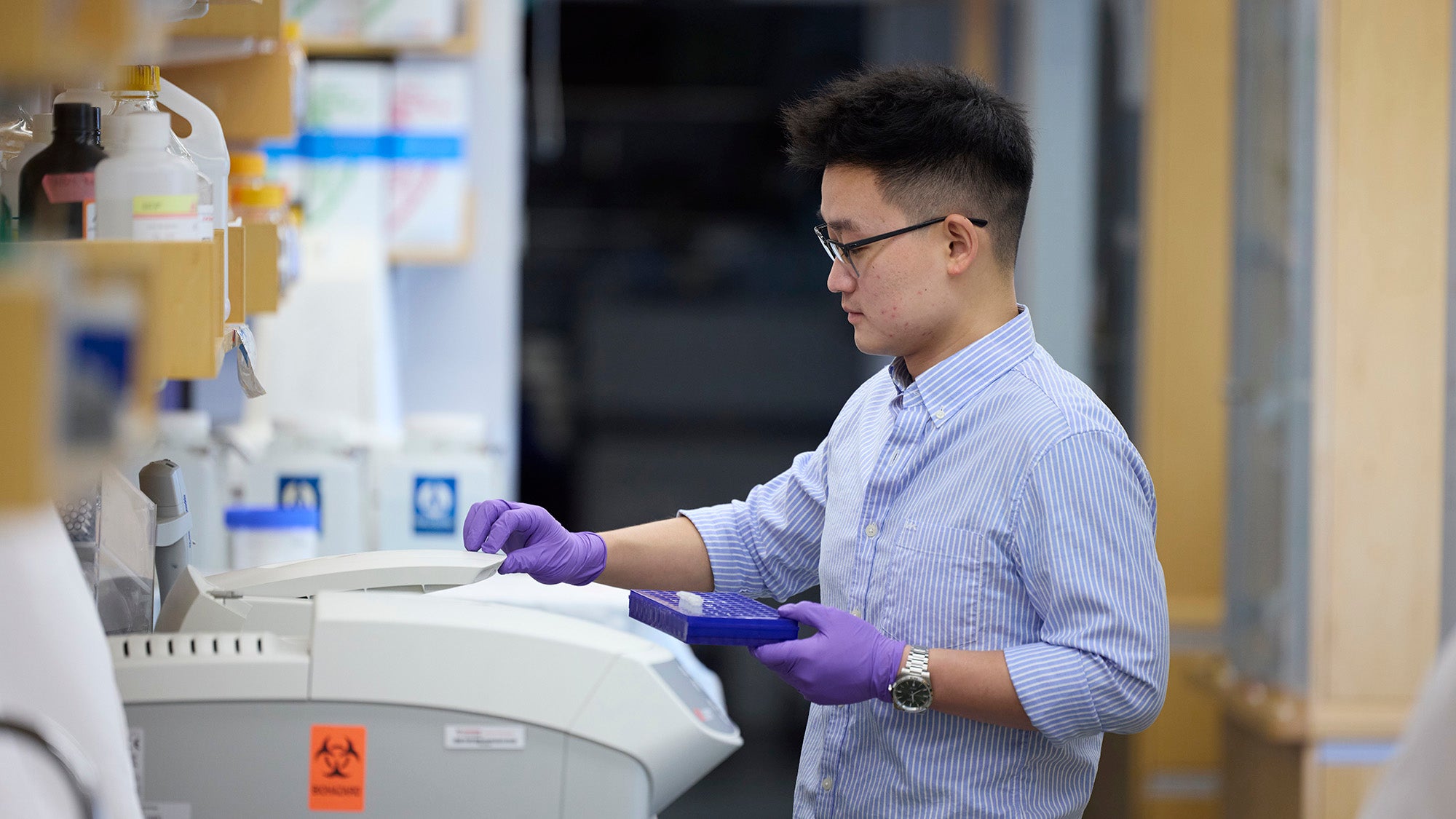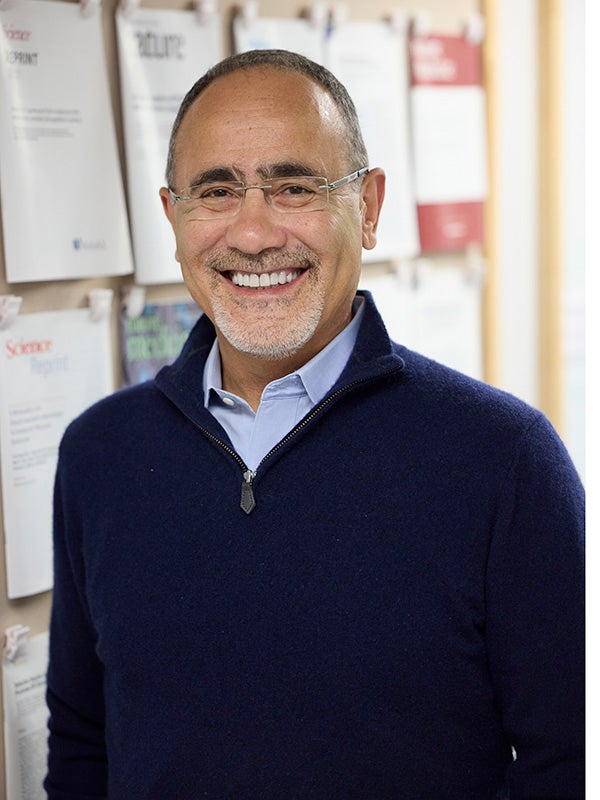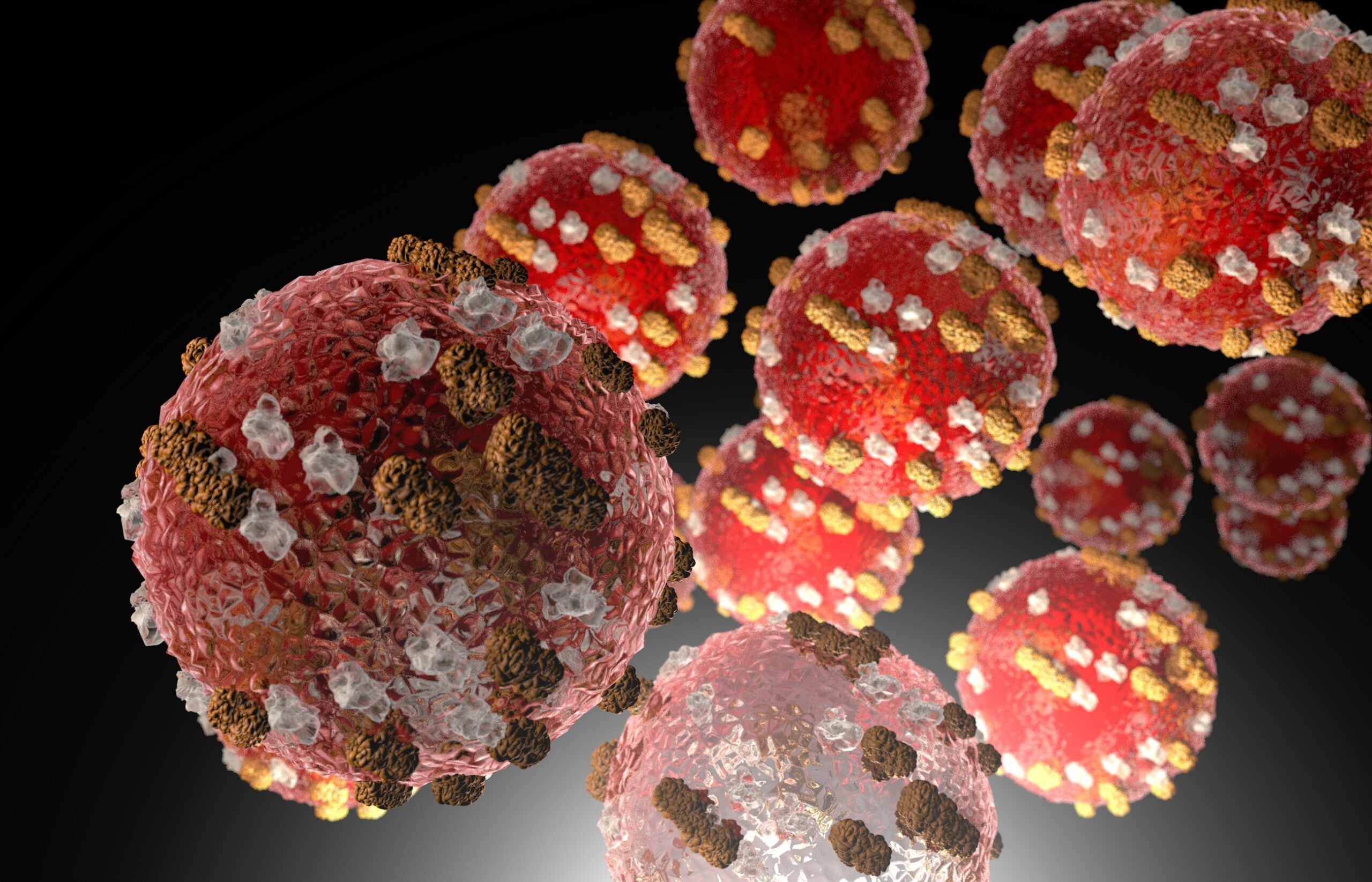Drawing on Harvard Chan School research, biotech startup aims to tackle age-related illness

Venture aims to develop therapeutics based on preclinical findings that blocking a hormone produced by fat cells protects mice from a wide array of metabolic and inflammatory disorders, including obesity, asthma, and cardiovascular disease
A new collaboration between Harvard T.H. Chan School of Public Health and İş Private Equity of Istanbul aims to translate groundbreaking discoveries about a protein that helps regulate metabolism and inflammation into novel therapeutics for obesity, heart disease, and age-related illnesses.

The agreement is based on the work of faculty member Gökhan Hotamışlıgil, who studies two ancient systems that are fundamental to life: metabolism, which converts nutrients into energy, and the immune response, which defends against pathogens. His research at the intersection of these systems led him to an unusual protein that is produced in fat cells—and, as his team discovered much later, secreted into the blood as an important hormone.
For more than 20 years, Hotamışlıgil has studied this protein, growing increasingly excited about its potential as a therapeutic target. Now, İş Private Equity, a subsidiary of Türkiye İşbank Group, aims to make that vision a reality.
The private equity firm has launched a biotech startup, Enlila, which has committed nearly $39 million over 10 years to support Hotamışlıgil’s preclinical research. Enlila will also invest additional funds to develop the lab’s discoveries into therapeutics.
“It means everything to us to have this support, especially in this climate,” said Hotamışlıgil, James Stevens Simmons Professor of Genetics and Metabolism.
Many of his research projects over the years have been funded by the National Institutes of Health—funding that is no longer available as the Trump administration seeks to cut off Harvard scientists from all federal grants. Hotamışlıgil’s research has also been supported by multiple corporate collaborations enabled by Harvard’s Office of Technology Development, as well as the Blavatnik Biomedical Accelerator and JDRF (now Breakthrough T1D), a nonprofit focused on improving treatments for diabetes.
Chance meeting leads to a major investment
The sponsored research agreement with İş Private Equity came about through a chance meeting.
Last fall, Hotamışlıgil was invited to give a scientific presentation in Istanbul at a symposium that Türkiye İşbank Group had organized to celebrate the bank’s centennial. He spoke primarily about his lab’s research into the molecular architecture of cells.
But Hotamışlıgil also included one slide highlighting a fascinating discovery made in his lab: Mice that had been genetically engineered to remove their ability to produce a common protein were astoundingly unaffected by metabolic disease or the ailments of old age. They didn’t live longer, but they remained healthy for their entire lifespans, even when fed high-calorie, high-fat diets that would typically lead to obesity, cardiovascular disease, and diabetes.
The CEO of İşbank, Hakan Aran, was in the audience. At a dinner later that evening, the two sat next to each other and talked about Hotamışlıgil’s presentation. The idea for a collaboration took root. Two entrepreneurs, Pınar Nokay and Erdem Yıldız, sketched out a framework and brought the teams together.
Unlocking the secrets of a powerful protein
The science at the heart of the collaboration revolves around a fatty-acid-binding protein known as FABP4.
FABP4 is primarily produced by adipocytes, or fat cells. The Hotamışlıgil lab discovered two decades ago that this protein is then secreted into the blood as a hormone. “It’s a very unusual mechanism,” he said. “That’s probably why we all missed it for so many years.”
Once FABP4 is secreted, it circulates in the blood and interacts with other proteins to form a hormone complex called fabkin. (That’s another oddity; most proteins circulating in the blood do not interact in this way with other proteins.)
Hotamışlıgil’s team has found that fabkin has profound impacts on metabolism and inflammation. When elevated levels of fabkin build up in the blood, the hormone begins sending inappropriate signals to an array of organs: The liver starts producing excessive amounts of glucose and fat deposits. Pancreatic cells stop producing enough insulin to properly regulate blood sugar. One after another, systems go haywire.
In both animals and humans, high levels of circulating FABP4/fabkin are associated with obesity, airway obstruction, type 1 and type 2 diabetes, and various age-related conditions, such as cardiovascular disease.
“The pathologies accumulate as the body produces more fabkin,” Hotamışlıgil said.
So, he and his team began exploring ways to knock down fabkin levels.
The genetically engineered mice he had mentioned at the conference in Istanbul offered compelling proof that animals which do not produce FABP4 are far less likely to develop metabolic diseases, even when exposed to diets and stressors that should significantly raise their risk.
“Their health span was identical to their life span,” Hotamışlıgil said—meaning the mice showed no evidence of common diseases of aging right up until their death.
But it’s tricky and expensive to develop the same kind of gene-editing therapies for people. Would it work, Hotamışlıgil wondered, to instead disrupt formation of the fabkin complex?
To test that hypothesis, Hotamışlıgil’s lab engineered an antibody that blocks the complex. To their delight, it proved effective. Mice treated with the antibody did not develop metabolic diseases, even in response to stressors. This was an important experiment, Hotamışlıgil said, as it also showed that FABP4 in the blood played a significant role in driving the disease.
Wide range of potential therapeutic effects
As an additional proof of concept, Hotamışlıgil teamed up with Eric Rimm, professor in the Department of Epidemiology at Harvard Chan School, to look at genomic data and health records from nearly 8,000 participants in the Nurses’ Health Study and the Health Professionals Follow-up Study.
First, the team discovered that some people carried a rare mutation that sharply reduces their production of FABP4. When Hotamışlıgil and Rimm analyzed health records, they found that those individuals were far less likely to develop type 2 diabetes and cardiovascular disease over time.
Subsequently, multiple independent genetic studies replicated these findings, some analyzing hundreds of thousands of people across three continents. Moreover, hundreds of independent studies definitively showed links between elevated FABP4 levels in the blood and metabolic disease in humans.
These findings have convinced Hotamışlıgil that antibodies to fabkin, potentially delivered through a simple injection, could be a powerful therapeutic to prevent or treat various metabolic diseases and diseases of aging.
He compares the approach to the GLP-1 class of drugs for diabetes and obesity, which have been huge clinical and commercial successes. Hotamışlıgil hopes his work could yield therapeutics with an even wider range of benefits than GLP-1 drugs.
In preclinical studies in his lab, targeting fabkin has shown promise in treating insulin resistance, chronic inflammation, airway disease, atherosclerosis, fatty liver disease, and type 1 and type 2 diabetes.
Under the sponsored research agreement, the Hotamışlıgil lab will identify additional antibodies that disrupt fabkin. Enlila, the biotech startup, will take the best of them into further development. The Hotamışlıgil lab will also continue basic research to understand more about the role fabkin and FABP4 play in metabolism, inflammation, and disease.
Model for future private-sector collaborations

Kent Dayton / Harvard T.H. Chan School of Public Health
For İşbank and İş Private Equity, the agreement is an opportunity to create a rare collaboration with an academic lab at the forefront of discovery.
“İşbank is proud to support Prof. Gökhan Hotamışlıgil’s research, with the goal of transforming a scientific discovery into a potential therapy for chronic conditions related to aging and obesity,” İşbank’s Aran said. “İşbank is eager to take part in the progress of academic research that creates value in science and technology. We believe that this vision has the potential to grow into a success story within the global health ecosystem.”
The CEO of İş Private Equity, Kubilay Aykol, added: “This agreement will allow Enlila to contribute to Turkey, the scientific community, and society at large by potentially bringing forward therapeutics to treat metabolic conditions that harm the health of tens of millions of people worldwide.”
The agreement is also a potential model for Harvard Chan School. In recent months, the School has lost nearly $200 million in federal funding, as the Trump administration has terminated nearly every direct federal grant for research and training.
In response, the School has launched a multi-faceted strategy to diversify revenue sources. One key initiative: Expanding collaborations and sponsored research agreements with industry. “We are looking for solutions-focused collaborators who share our vision of advancing world-class science to address urgent challenges in public health,” Harvard Chan Dean Andrea Baccarelli said.
Hotamışlıgil credits the sponsored research agreement that will keep his lab running to dedicated work by staff in Harvard’s Office of Technology Development, which focuses on translating new discoveries into products with real-world impact.
“They’re amazing,” Hotamışlıgil said. “The only thing they think about is ‘How can we help faculty? How can we bring them together with interested parties to advance their work, to realize real-life applications? They’re an incredible asset.”


